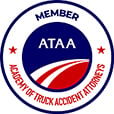With the start of summer in California and society incrementally returning to some semblance of normalcy after two difficult years, people are excited. Most excited are children who will be returning to outdoor activities with their friends. For many, that includes going to summer camp. Whether it is a day camp or a sleep away camp, the activities and fun are something to look forward to.
However, parents who have experienced a child suffering serious injury at a camp are warning others that they should be aware of the lack of vigilance that many of these camps have. An absence of proper safety training among staff members, lax rules and inattentiveness can cause brain injuries, spinal cord damage, burns and other catastrophic challenges. Avoidance and protection is obviously the best bet, but after an accident has happened, it is imperative to understand the available options.
Day camps are not subject to state laws for safety
It was recently reported that these camps are not required to have licenses, compel staff to have background checks, know life-saving measures like CPR or report when children have been injured. The Golden State does not have an agency to inspect these facilities, make sure the staff is trained and see that they are generally safe. Since many camps include potentially dangerous activities like swimming, target shooting and zip lining, this is a concern.
Anecdotal evidence from parents whose kids were injured is highlighting the dangers. One six-year-old drowned at a camp. The parents found that the supervision was limited and the people there were unqualified. Estimates say that California has more than 1.2 million kids going to various camps during the summer months. This is supposed to give the parents a place to bring their kids when they are working in the summer and get the children much needed time with the friends and to exercise.
Although the California State Assembly is trying to implement some oversight through legislation, it has not yet become law. Some states do have regulations in place that camps must adhere to. California is not yet one of them.
Injuries can cause damage for the rest of their lives
A prime example of a long-term catastrophic injury is a traumatic brain injury. A child who suffers TBI will likely need extended hospitalization and care. Even with that, they are likely to have various symptoms long after they have been discharged. This can be financially and emotionally problematic for their parents.
Examples of the long-term issues that can arise are speech impairments, vision difficulties, hearing loss, pain, loss of coordination, seizures, problems writing, inability to plan, lack of judgment, decline in concentration and various personality disorders. Because children are not fully developed, their long-term prognosis is negatively impacted by the TBI. This can delay or outright prevent them from independent living.
After children suffer catastrophic injuries, parents have rights
When there is an injury or fatality at a day camp, parents might not have known about the inherent problems with these entities. Obviously, they were expecting them to be safe and the state to take part in ensuring that safety rules were followed. As this information shows, that does not happen as it should.
Gathering evidence is imperative when pursuing a claim. This can be essential to show that the camp was not doing everything it should have to protect children. Parents will need help financially and personally to care for children who have suffered catastrophic injuries in a day camp. Consulting with experienced professionals who are aware of how children are negatively affected and what to do can be helpful.






















